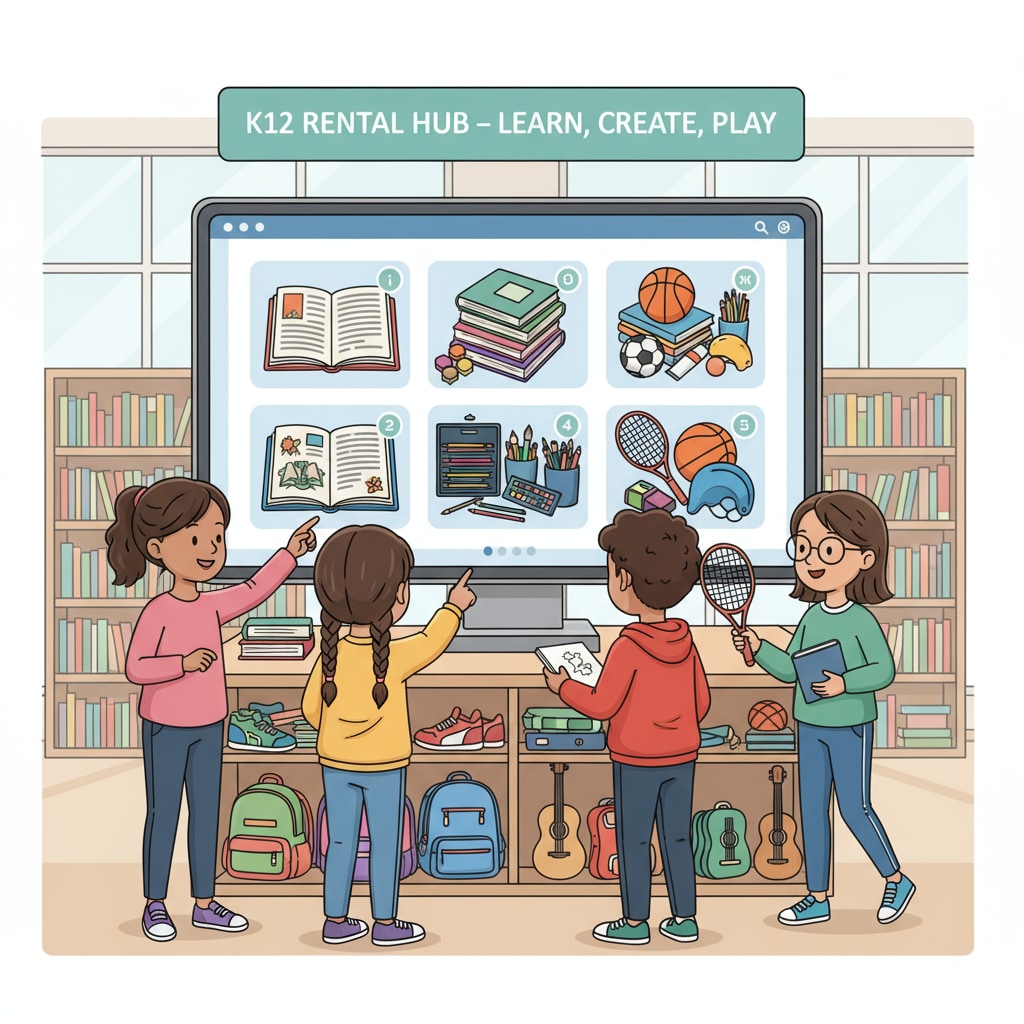Student rental platforms, campus item sharing, and extra income are concepts that are gaining traction in the K12 educational landscape. In recent years, the idea of a sharing economy has permeated various aspects of society, and the campus environment is no exception. A student idle item rental platform in the K12 setting holds great promise, not only in terms of promoting resource sharing but also in cultivating students’ awareness of resource management and social responsibility.

The Feasibility of K12 Student Idle Item Rental Platforms
K12 students often accumulate a significant number of idle items. Textbooks, sports equipment, art supplies, and even electronics are just some of the items that may lie unused in students’ closets. A rental platform provides a practical solution to make use of these items. For example, textbooks that are no longer needed by one student can be rented to another who requires them, saving both money and resources. Additionally, it offers an opportunity for students to earn some extra income by renting out their idle possessions. According to Sharing economy on Wikipedia, the sharing economy model has proven to be successful in many sectors, and the campus can be a fertile ground for its implementation among students.

Cultivating Resource Management and Social Responsibility
Participating in a student idle item rental platform can have a profound impact on students’ development. It instills in them a sense of resource management as they learn to value and make the most of their belongings. Instead of simply discarding items they no longer need, students can rent them out, which reduces waste. Moreover, it promotes social responsibility as students engage in a community-based sharing activity. They understand that their actions can contribute to a more sustainable and resource-efficient campus environment. As a result, students become more conscious of the impact of their consumption patterns.
Building Trust in the Campus Sharing Ecosystem
Trust is the cornerstone of any successful sharing platform. In the context of a K12 student idle item rental platform, several strategies can be employed to build trust. Firstly, a verification system can be implemented to ensure the identity of both the renter and the owner. This can involve using school-issued identification or other reliable methods. Secondly, a rating and review system similar to those on popular e-commerce platforms can be established. This allows users to rate their experiences, providing valuable feedback for others. Thirdly, clear terms and conditions regarding rental periods, damage compensation, and payment methods should be laid out. By following these steps, as recommended by E-commerce on Britannica, a safe and reliable item sharing ecosystem can be created for students.
In conclusion, student rental platforms, campus item sharing, and extra income present a viable and beneficial option for K12 students. These platforms not only offer practical solutions for resource utilization and financial gain but also contribute to the holistic development of students. By focusing on building trust through appropriate mechanisms, the potential of such platforms can be fully realized, creating a more sustainable and collaborative campus environment. Readability guidance: The content uses short paragraphs to present ideas clearly. Lists could be further enhanced in future to better summarize key points. Passive语态 is kept to a minimum, and transition words like ‘for example’, ‘additionally’, ‘as a result’ are used to improve flow.


